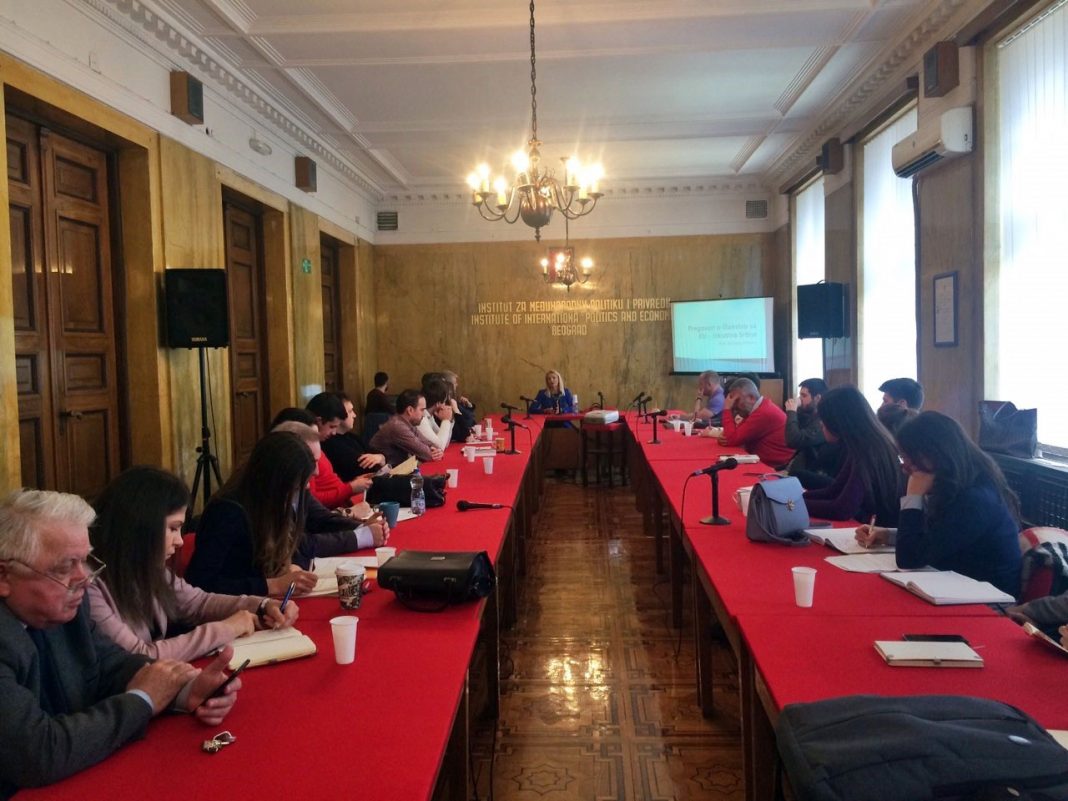As a part of the fourth round of the IIPEʼs Winter School of International Relations, Professor Tanja Miščević, Head of the Negotiating Team for Accession of the Republic of Serbia to the European Union, delivered a lecture on the current status of negotiations for the accession of Serbia to the European Union. In her lecture, Professor Miščević discussed the current position of Serbia in the negotiation process and European integration, the reasons for its slow pace and sidelining, as well as future plans and expectations. Recalling that Serbia has opened sixteen out of thirty-five chapters, with two being provisionally closed, Professor Miščević emphasised the state of the current negotiations in the framework of the chapter 31, related to the Common Foreign and Security Policy. The reasons for the slow pace of the negotiating process are the conditions for membership, sanctions against Serbia and the lack of a single market by 2006, the unresolved issue of Kosovo and cooperation with the ICTY. Also, an obstacle for the greater progress of the negotiating process can be found in unresolved issue of the United Kingdom’s withdrawal from the EU (Brexit), the issue of the new financial perspective, forthcoming elections for the European Parliament and the Lisbon Treaty leftovers. Having in mind the historical development of the EU, Professor Miščević deems both the reform of the EU and the enlargement successful only if proceeded in parallel. When it comes to the future plans and expectations, Professor Miščević considers wholeheartedly the EU as the best reform and development agenda for Serbia; she expects new negotiating chapters to be closed conditionally in the late 2020.
© Copyright 1996-2025. IIPE. All rights reserved


